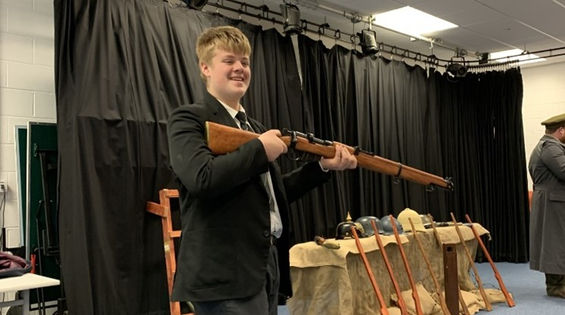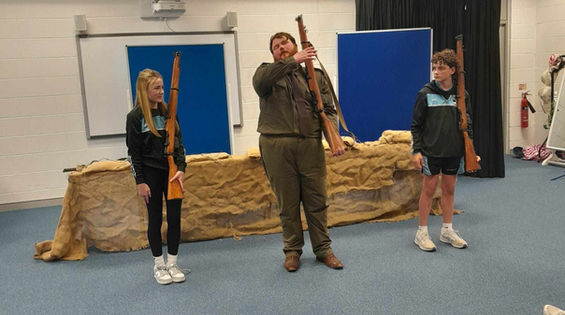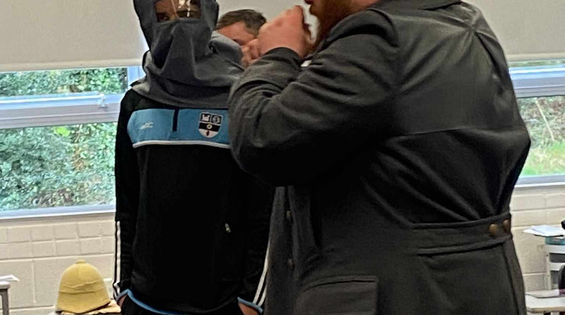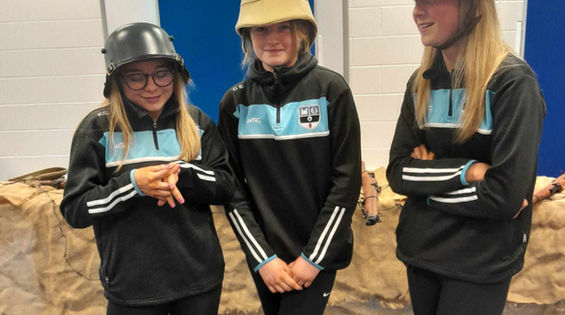
History Department
At Drumglass, History is more than a subject, it is an experience.
Will you study History or Make History?
Welcome to the history department with Mr McConnell and Mrs Callan.
-
In year 8 pupils have been busy learning about- Time, Evidence and Identity- making identity handprints.
-
The Norman Legacy- an understanding of evidence.
-
The Norman Conquest (including the battle of Hastings, Bayeux tapestry, feudalism and the doomsday book)
-
Norman Castles- making .
-
Norman Life- a newspaper challenge.
-
In the summer term year 8 pupils explore a short History of Dungannon the Fort on the Hill , including research into the House system – Ardress, Argory, Springhill and Wellbrook.
In Year 9 pupils continue to develop their skills working with others and striving towards independent learning and research. Topics covered include –
-
The positives and negatives of the British Empire.
-
A research project in a topic of change selected by the individual learner.
-
If time allows an individual investigation into the Titanic – triumph and tragedy
The year 10 curriculum is being developed as a preparation for the next key stage.
-
The Twentieth century in turning points.
-
The Crocket cup Twentieth century personality project.
-
The First World war with a focus on the Battle of the Somme.
-
A family through the Holocaust – wall display challenge .
-
Causes of partition in Ireland and Consequences of Partition
In Key Stage Four, GCSE History is offered (CCEA) which focuses on – Unit one Life in Hitlers Germany and Changing relationships with Northern Ireland and its neighbours. 1965-1998.
Unit 2 International Relations, 1945–2003
Close to the11th of November the History department organise an inclusive assembly to remember all those who have died in past wars and conflicts.
Philosophy
The experience of History in both Key Stages is aimed at developing an enjoyment of the subject. The universal skills of independent learning are encouraged by research, organisation, analysis as well as using communication through arguments and debate. We encourage a strong emphasis on local and Ulster/Irish history.









